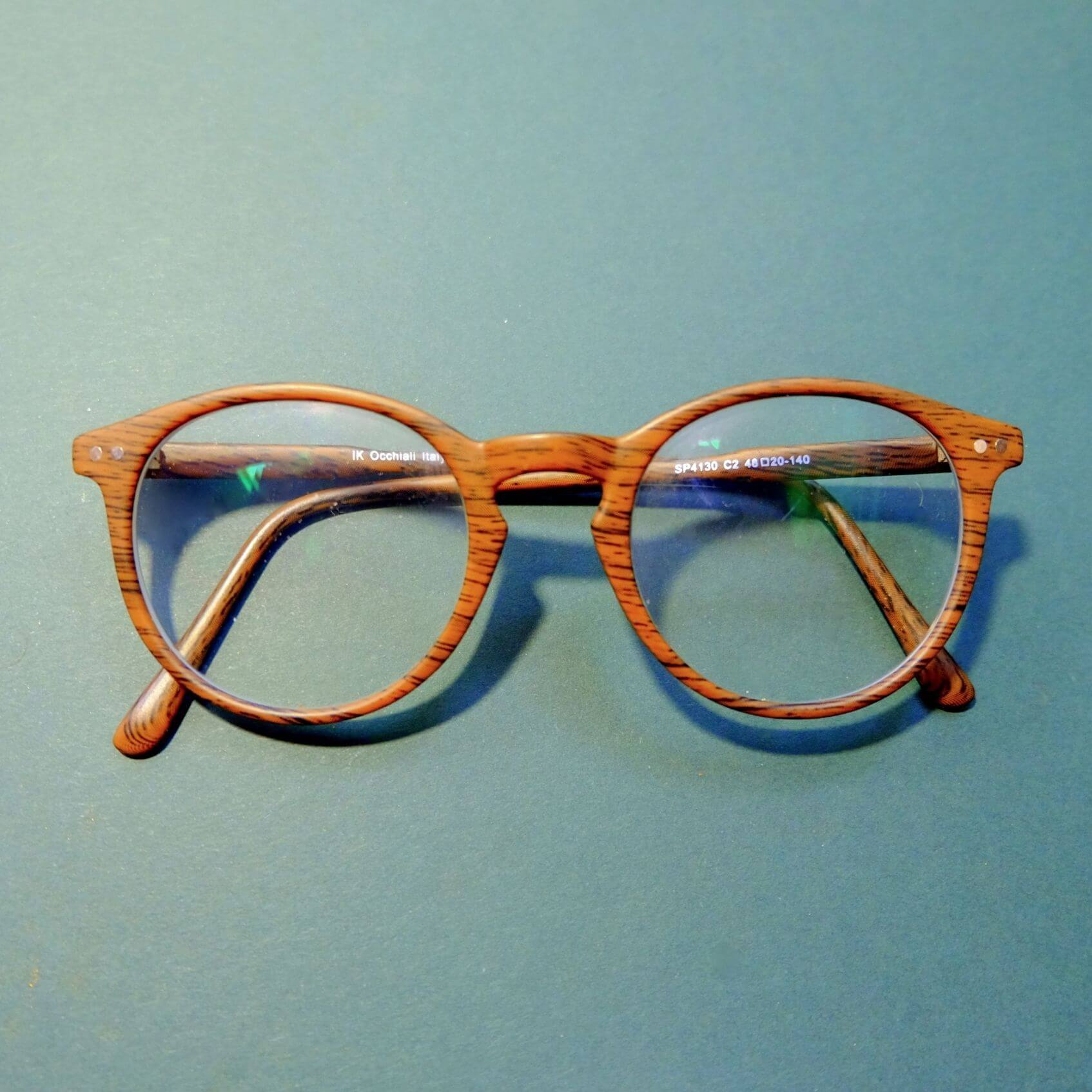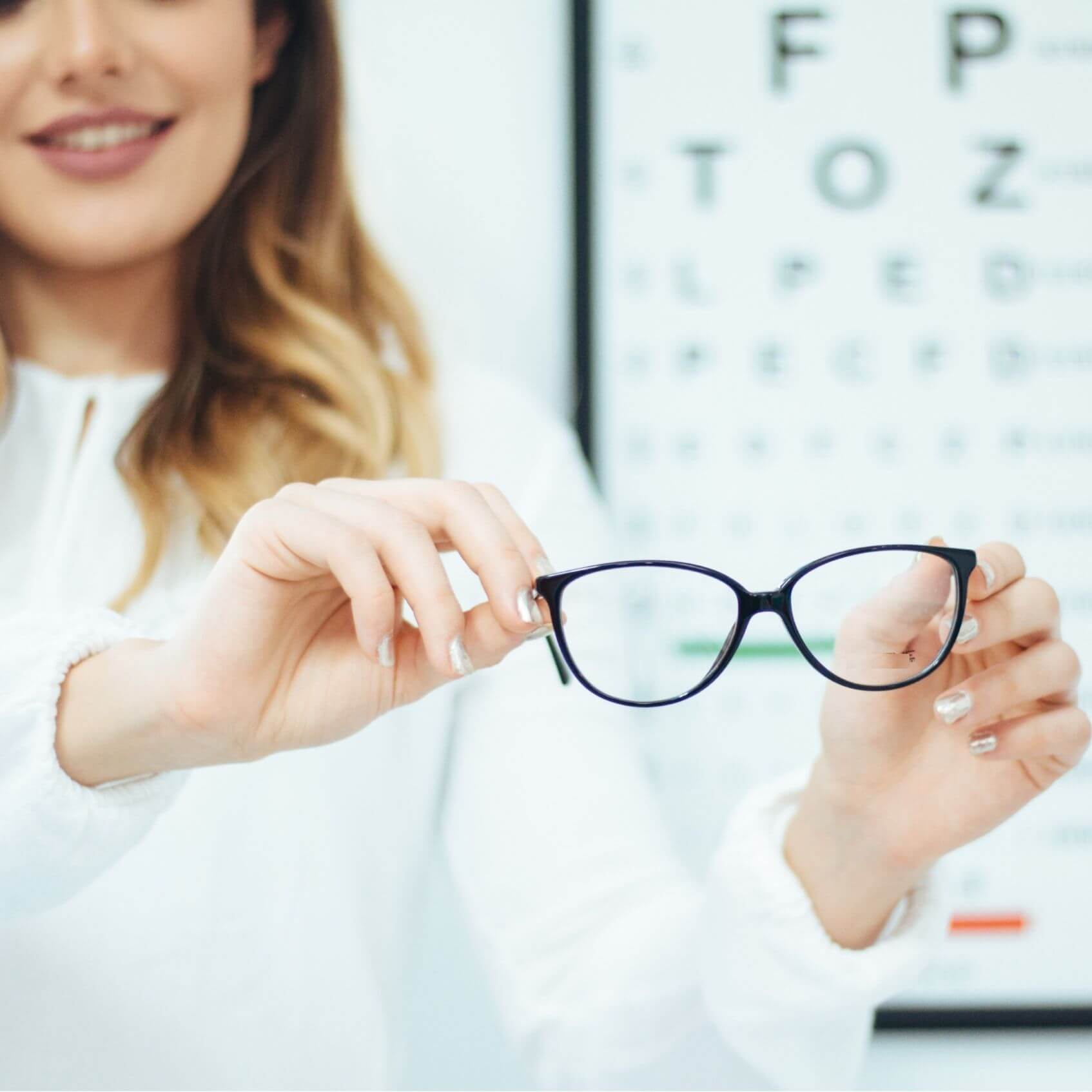Anti-reflective (AR) or anti-glare (AG) lens coatings reduce the amount of light reflecting off your lenses. The result is less lens glare, eye comfort, and improved visibility. So, what are the benefits of anti-reflective coating on glasses?
Read our quick guide to find out:
- What anti-reflective coating is and how it works.
- How anti-reflective coating benefits vision and eye health.
- Why experts say anti-reflective coating is worth the cost.
First, let’s get a basic definition of AR coating and its intended purpose.
What Is Anti-Reflective Coating?
Anti-reflective or anti-glare coating is a chemical applied to lenses in prescription glasses or sunglasses that reduces reflective light in lenses—otherwise known as lens glare.
Lens glare temporarily affects vision, causes discomfort, and increases eye strain.
What Are The Benefits of Anti-Reflective Coating?
Today, optometrists recommend anti-reflective coating for bifocal, multifocal, progressive lenses, reading glasses, and prescription sunglasses.
What to Expect from Anti-Reflective Lenses
AR and AG coating offers profound benefits for eyeglass wearers, including:
- Eye comfort
- Added UV protection
- Improved sports performance
- Less eye strain
- Lowered blue-light exposure
One study found that participants’ low-light contrast sensitivity was two times better with AR-coated glasses.
Researchers also found that anti-reflective coatings allow 99.5% of light to pass through coated lenses. Only reflective light, researchers noted, is blocked.
What to Expect from Traditional Lenses
Lenses without anti-reflective coating expose eyeglass wearers to lens glare. In some situations, such as driving at night, lens glare can be hazardous.
Exposure to lens glare can cause:
- Eye strain
- Poor low-light vision
- Lower visibility while night-driving
- Rings around bright lights
- Dolores de cabeza
- Obscured eyes in photos or on video
In the modern world, traditional, untreated lenses simply aren’t up to the task.
How Do Anti-Reflective Coatings Work?
Scientists developed the first anti-reflective coatings for high-powered telescopes, microscopes, and cameras. Now, it’s used for lenses, too.
Anti-reflective coating is a series of metal oxide layers that create an intermediate barrier between your eyes, the air, and the lens.
The result is that more light goes through your lenses and less bounces into your eyes in the form of lens glare.
Who Needs Anti-Reflective Coating?
As we’ve stressed before, anti-reflective coating is a good choice for any person of any age.
So let’s look at the lifestyles and professions that might require the benefits of anti-reflective coating on glasses. We’ll give you our verdict. See if you agree.
The At-Home Worker
If you work from home, you’re overexposed to blue light and at greater risk for eye strain and migraines.
Our verdict: Working from home? Go for AR coating.
The Avid Outdoorsman
Extended time outdoors exposes your eyes to direct sunlight and external glare from reflective elements like water and snow.
Our verdict: Active people and outdoorsmen need AR coating.
The Professional Driver & the Commuter
When you’re driving on highways and through urban centers, “night” doesn’t mean “dark.” In fact, the intensity of reflective light increases, and eye fatigue can quickly turn dangerous.
Anti-glare coating dramatically improves night vision by increasing the amount of environmental light passing through your lenses.
In simple terms, anti-reflective lenses give you the light you need to see clearly and drive safely: just the good light and none of the bad.
Our verdict: Commuters and professional drivers need AR coating.
Is Anti-Reflective Coating Worth It?
The answer is “yes.” Science clearly shows the benefits of anti-reflective coating on glasses and the public recognizes the importance of long-term eye health. AR coatings are more popular than ever.
If you still have questions about anti-reflective coatings, feel free to:
- Call us at (817) 200-4333
- Walk-in and talk to one of our staff
- Programa una cita for an eye exam
Come on in and experience the benefits of anti-reflective coating yourself. We promise you’ll feel the difference.
Sincerely,
Your VC Vision Team


